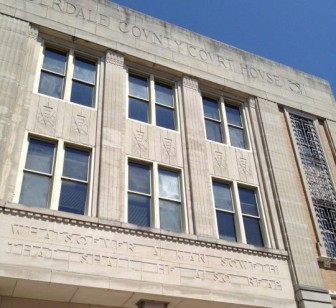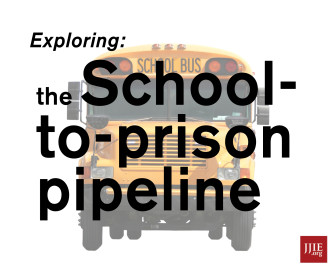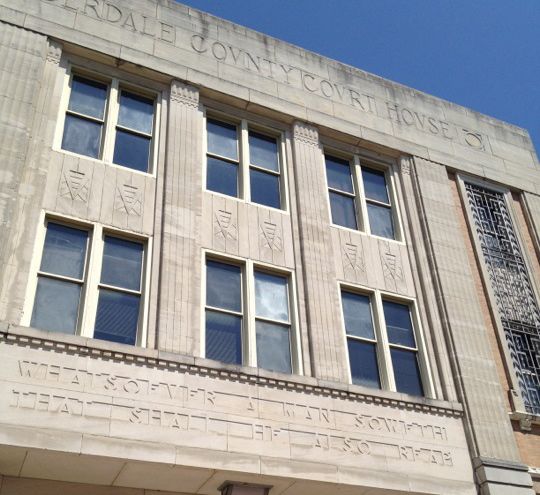 ATLANTA — If minority students face harsher punishments than white students for the same school infractions in many schools, as plenty of studies say they do, there are also people who want to change that, and the struggle is happening in courts, in state legislatures, in classrooms and at school board meetings.
ATLANTA — If minority students face harsher punishments than white students for the same school infractions in many schools, as plenty of studies say they do, there are also people who want to change that, and the struggle is happening in courts, in state legislatures, in classrooms and at school board meetings.
Nationwide, about 17 percent of all black children in grades K-12 were suspended at least once, according to a 2012 UCLA analysis of 2009-2010 school year data. Take a black child who has a disability and the rate goes up to 25 percent.
For a white child with no disability, the suspension rate was about 5 percent.
According to its authors, UCLA’s Center for Civil Rights Remedies report represents the first effort to analyze and educate about school discipline in nearly every state.
Some districts are more equal than others, it also found. Hundreds of school districts either do not have highly differentiated suspension rates among ethnic groups or they rarely use suspension anyway, or both. By UCLA’s math, 4,504 school districts nationwide have a statistically significant black population. Black students in least 1,400 of those districts are at a 3 percent or less risk of suspension.
 Suspension is a large entryway into what’s called the school-to-prison pipeline: school discipline policies that have the effect of channeling young people out of school and eventually into the juvenile and criminal justice systems.
Suspension is a large entryway into what’s called the school-to-prison pipeline: school discipline policies that have the effect of channeling young people out of school and eventually into the juvenile and criminal justice systems.
The federal departments of Justice and Education both say the pipeline is a problem. They battle it with legal action and investigations — like in Memphis, Tenn., and Meridian, Miss., and with support for an initiative to change school discipline policies.
Attacks on the pipeline are coming from other quarters as well.
Professional Pursuit
Law enforcement, judges and state governments are working on best practices on a national level, with three major initiatives rolling out soon.
The Council of State Governments and the International Association of Chiefs of Police are both working on best practices guides for their members. Meanwhile, the National Council of Family and Court Judges is about to send out trainers to 16 jurisdictions that want to learn how to implement the practices that drive down student involvement with law enforcement.
That’s “three very significant and substantial national organizations with a lot of clout who are developing best practices to help local communities” close the school-to-prison pipeline, said Clayton County, Ga., Juvenile Court Chief Judge Steve Teske, who has worked with all three of them.
Teske, an occasional oped writer for JJIE, said once all three initiatives are underway it may be possible to see the end of the pipeline.
Learn more about school discipline reform trends at the Juvenile Justice Resource Hub HERE.
His court has been actively fighting the pipeline for almost a decade and driving down Clayton County school arrests. Teske is constantly recruited by other judges and stakeholders for advice and training on his judicially-led model. The demand, he said, is more than one team can handle.
That’s in part because jurisdictions deciding to take their own initiative and working on the problem domain, he said, is growing by “leaps and bounds.”
Lawyers for Texas
In Texas, battles about court and kids take place in court and at the state capitol.
Texas Appleseed, a social and economic justice group, has partnered in filing two legal complaints this year related to the pipeline, said staff attorney Mary Mergler.
One is a complaint to the federal Department of Justice’s Civil Rights divisions about truancy, and Dallas’ answer of fines, followed by contempt of court citations for youth who do not pay.
“Texas is only one of two states that prosecutes truancy as a crime in adult criminal court,” said Mergler. “Dallas County in particular is handling these cases in an especially bad way,” via its Truancy Court, she added. A guilty plea there lands a child with an adult criminal record, she said.
The other is a complaint to the federal Department of Education, which has agreed to investigate southeast Texas’ Bryan Independent School District for alleged ticketing of African-American students at four times the rate of their peers.
(Other groups have used a similar complaint strategy. Starting in 2005, The Southern Poverty Law Center/Southern Disability Law Center went to the Louisiana Department of Education alleging disproportionate minority punishment in three school districts, all of which ended in settlement agreements.)
Back in Texas, Mergler offers kudos to the state legislature on legal changes earlier this year as well. No longer can students get a Class C misdemeanor citation from police for class disruption. It was a “very commonly ticketed offense,” said Mergler, and it sent students to adult courts.
Madison Classrooms
Court plays little part in Madison, Wisc., schools, by contrast.
“We’re struggling as a community to acknowledge that we have racial disparities,” said YWCA Madison CEO Rachel Krinsky.
Her chapter of the YWCA is tackling the black achievement gap and discipline gap in schools as part of its mission to eliminate racism.
In a place where the political culture includes striving to prove liberal credentials and lack of bias, plenty of Madisonites say they “don’t see race,” said Krinsky. Yet African-American students are suspended out of proportion to their enrollment, according to the federal Department of Education.
The YWCA’s approach is teaching restorative justice in schools — rehabilitation of offenders based on reconciliation with victims and the community. Middle or high school students can enroll in an eight- to nine-week elective where the curriculum includes lessons about the pipeline and racial disparities. When the student finishes the class, they become what’s called a Circle Keeper: a kind of student facilitator who can convene “circles” of parents, staff, teachers and other students to help a student who is having a problem.
The point is to discuss the problem, the people or the situations responsible, and what agreements the parties can come to for resolution, Krinsky said.
Though Madison has Teen Court, Krinsky said, circle-keeping is not modeled on it. The point, she said, is to avoid a court-type trial experience.
Chapters of the YWCA have leeway about how they want to work on their mission of eliminating racism — so Madison’s campaign is local.
Some NAACP chapter campaigns are also local. In places like Meridian, Miss., and Broward County, Fla., local NAACP leaders spearhead grass-roots efforts to change school system codes of conduct, discipline matrices and rules governing police on campus.
But in both places, the NAACP worked with a specialist, The Advancement Project, an organization that’s worked to shut off the pipeline since 1999.
Multi-jurisdiction specialist
“When we first got started, zero tolerance was the rule of the day,” said Thena Robinson-Mock, project director of the Ending the Schoolhouse to Jailhouse Track Campaign at the Advancement Project. Now schools are starting to want something better, she said.
At the forefront of the Advancement Project’s strategy is supporting grassroots organizations that are working on closing the pipeline. That’s why their name comes up in connection with local campaigns across the country, like those of the NAACP, Denver’s Padres and Jovenes Unidos, and Durham, N.C.’s SpritHouse.
Groups approach the Advancement Project for help on “amplifying their campaign,” as Robinson-Mock put it, emphasizing that the grass roots lead the campaign and outline what they need help with: lawyers, organizing, communications and so on.
The Advancement Project has also worked in several other states, including New York, Illinois, Virginia and Maryland.
On the national level, Robinson-Mock said, their strategy is to bring stakeholders together at places like conferences that include administrators, teachers, activists and students.
“Looking at the big picture, you’ve got to have all folks involved in this to improve outcomes for young people,” she said.
